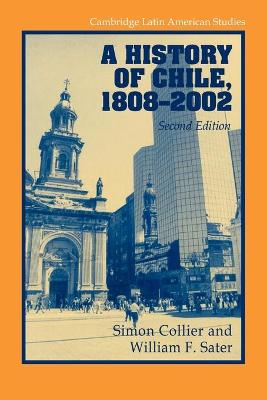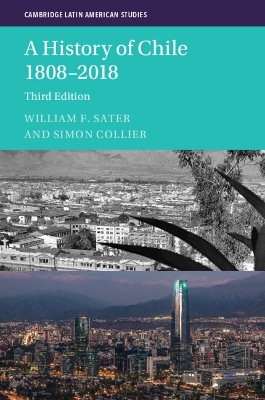Cambridge Latin American Studies
5 total works
Chile enjoyed unique prestige among the Spanish American republics of the nineteenth century for its stable and increasingly liberal political tradition. How did this unusual story unfold? The tradition was forged in serious and occasionally violent conflicts between the dominant Conservative Party, which governed in an often authoritarian manner from 1830 to 1858, and the growing forces of political Liberalism. A major political realignment in 1857-8 paved the way for comprehensive liberalization. This book examines the formative period of the republic's history and combines an analysis of the ideas and assumptions of the Chilean political class with a narrative of the political process from the consolidation of the Conservative regime in the 1830s, to the beginnings of liberalization in the early 1860s. The book is based on a comprehensive survey of the writings and speeches of politicians and the often rumbustious Chilean press of the period.
A History of Chile traces the nation's political, economic, and social evolution from its independence until the 1994 inauguration of President Eduardo Frei. This book explains how Chile evolved politically from a nation dominated by a small aristocracy into a democracy, and how it created an economy which increasingly relied on its factories rather than solely on its mines. Finally, it describes the development of Chilean culture, which is a unique fusion of European and Latin American sources.
A History of Chile chronicles the nation's political, social, and economic evolution from its independence until the early years of the Lagos regime. Employing primary and secondary materials, it explores the growth of Chile's agricultural economy, during which the large landed estates appeared; the nineteenth-century wheat and mining booms; the rise of the nitrate mines; their replacement by copper mining; and the diversification of the nation's economic base. This volume also traces Chile's political development from oligarchy to democracy, culminating in the election of Salvador Allende, his overthrow by a military dictatorship, and the return of popularly elected governments. Additionally, the volume examines Chile's social and intellectual history: the process of urbanization, the spread of education and public health, the diminution of poverty, the creation of a rich intellectual and literary tradition, the experiences of middle and lower classes and the development of Chile's unique culture.
This book covers the years from the breakdown of the Spanish Empire in America to the stabilisation of the new republic of Chile. It is a survey of the political ideas and the interplay of ideas and political action during the independence period. Whilst examining the influences making for change in late colonial Chile and the implications of political experiment and instability, much of the text is devoted to a description of the common ideology of the revolution. The author considers that the political theory was based on the notions of the social contract, the sovereignty of the people, representative government, the division of powers and a system of natural rights. It was derived from the liberal thought of the enlightenment and from the doctrines of the North American and French revolutions. But it was a complex of vaguer emotions and attitudes such as utopianism, anti-Spanish feeling, the 'black legend', an incipient nationalism and the idealisation of the Araucanian Indian which gave the revolution its mystique.


